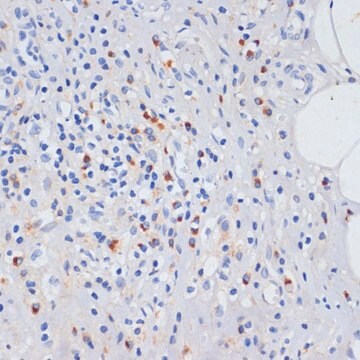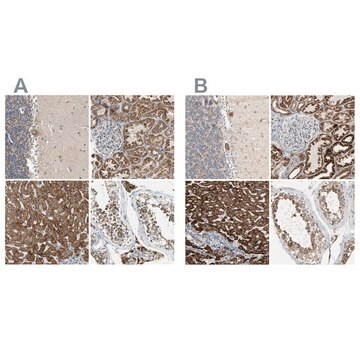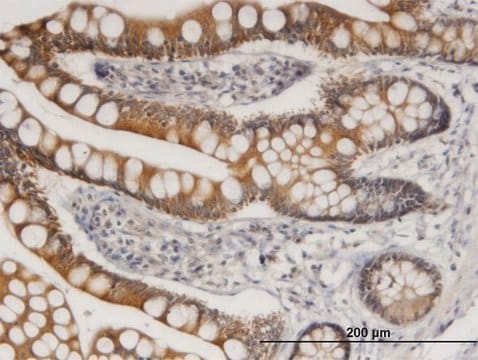推荐产品
生物源
rabbit
共軛
unconjugated
抗體表格
IgG fraction of antiserum
抗體產品種類
primary antibodies
無性繁殖
polyclonal
形狀
buffered aqueous solution
物種活性
mouse
技術
western blot: 1:1,000
運輸包裝
dry ice
儲存溫度
−20°C
目標翻譯後修改
unmodified
一般說明
TLR4, a type I membrane protein that belongs to the Toll-like receptor family, cooperates with LY96 and CD14 to mediate the innate immune response to bacterial lipopolysaccharide (LPS). It acts via MyD88, TIRAP and TRAF6, leading to NF-kappa-B activation, cytokine secretion and the inflammatory response TLR4 Belongs to the lipopolysaccharide (LPS) receptor, a multi-protein complex containing at least CD14, LY96 and TLR. TLR4 binds to LY96 via the extracellular domain, and to MyD88 and TIRAP via their respective TIR domains. The protein contains 19 leucine-rich (LRR) repeats, and It is highly expressed in heart, spleen, lung and muscle. Lower levels are found in liver and kidney. Interstrain analyses reveal that TLR4 is a polymorphic protein and that the extracellular domain is far more variable than the cytoplasmic domain, which is variable at the C-terminal.
免疫原
TLR4 (Q9QUK6, 29-65)
This antibody is generated from rabbits immunized with a KLH conjugated synthetic peptide selected from the N-terminal region of mouse TLR4.
This antibody is generated from rabbits immunized with a KLH conjugated synthetic peptide selected from the N-terminal region of mouse TLR4.
外觀
Purified polyclonal antibody supplied in PBS with 0.09% (W/V) sodium azide.
免責聲明
Unless otherwise stated in our catalog or other company documentation accompanying the product(s), our products are intended for research use only and are not to be used for any other purpose, which includes but is not limited to, unauthorized commercial uses, in vitro diagnostic uses, ex vivo or in vivo therapeutic uses or any type of consumption or application to humans or animals.
未找到合适的产品?
试试我们的产品选型工具.
儲存類別代碼
10 - Combustible liquids
水污染物質分類(WGK)
nwg
閃點(°F)
Not applicable
閃點(°C)
Not applicable
Marian Jesabel Pérez-Rodríguez et al.
Journal of neuroinflammation, 17(1), 95-95 (2020-03-30)
Huntington's disease (HD) is caused by the expression of a mutated variant of Huntingtin (mHtt), which results in the complex pathology characterized by a defective function of the nervous system and altered inflammatory responses. While the neuronal effects of mHtt
我们的科学家团队拥有各种研究领域经验,包括生命科学、材料科学、化学合成、色谱、分析及许多其他领域.
联系技术服务部门








